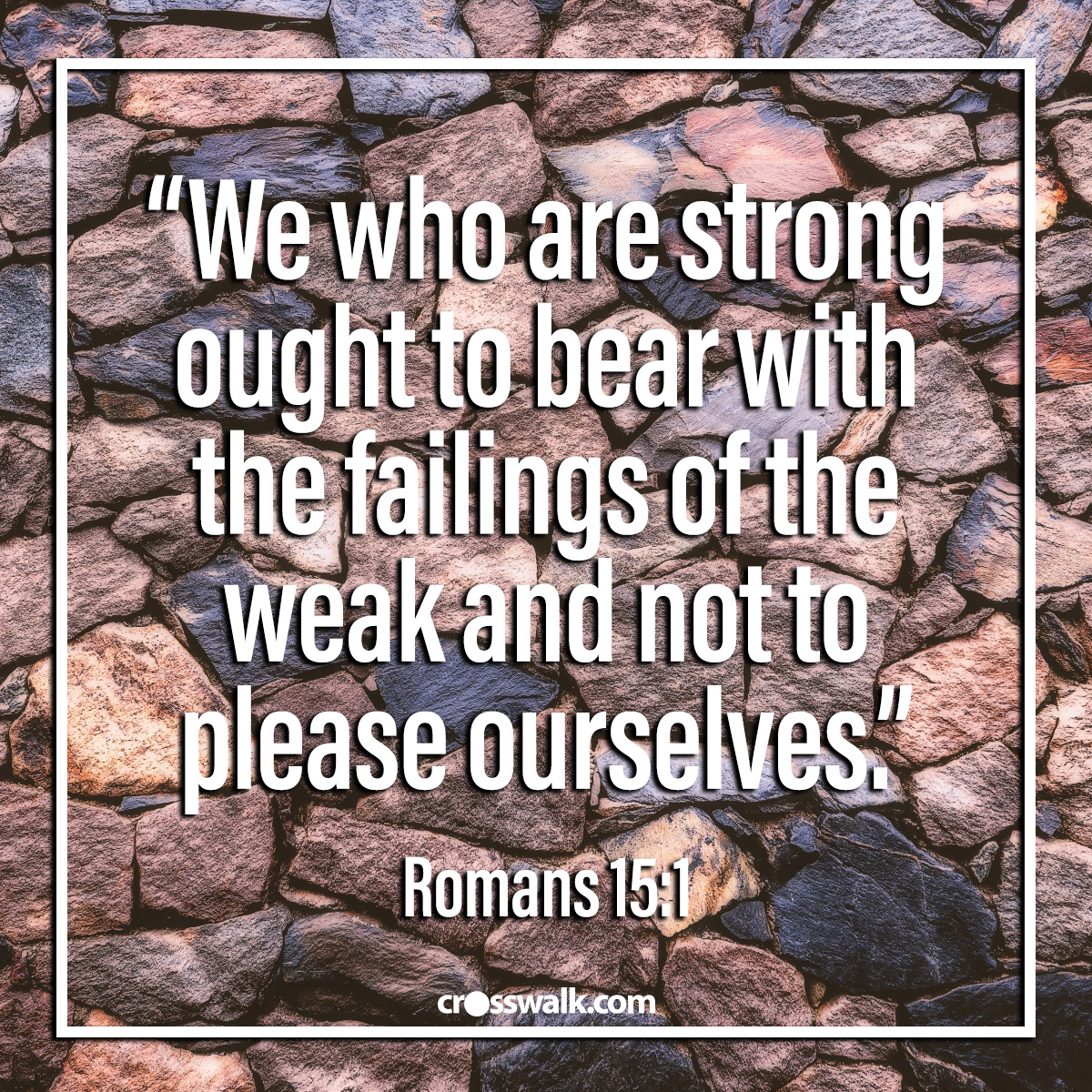
The Power of Empathy
By Jen Ferguson
“We who are strong ought to bear with the failings of the weak and not to please ourselves.” Romans 15:1, NIV
I came down the stairs, my mind and stomach churning with anxiety. How will I get it all done? I thought. I recently received the blessing of increasing my hours at my job, but was figuring out how to manage the other aspects of my life with less available time. I’m a “get things done” kind of person. As such, it doesn’t cross my mind that some commitments may need to lose their space on the calendar. Instead, I play a game of Tetris in my head, trying to figure out how to squeeze more in.
Craig sat in the chair waiting for me as we were headed out soon to meet a couple for lunch. As I gathered my things, I told him how I was feeling. He listened to my short sentence and responded with, “The solution to the problem is…”
Sometimes there are instances when we share a problem and it requires fixing. If the washing machine isn’t working, I’m looking for a solution so that I can resume doing the laundry. If we have two girls that need to be in two different places at the same time, I want a solution so we can all get where we need to go. I don’t need Craig to ask me how I feel about mechanical things breaking or scheduling changes.
However, when I’m sharing my feelings, I’m not looking for a fix. My feelings just are. I don’t want someone to come in and rearrange them into something that looks and feels better. And I certainly do not want anyone telling me I shouldn’t feel a certain way.
But sometimes when we are standing across from someone (and I have been guilty of this, too), our inclination is to rescue instead of empathizing. We try to stamp out the negative thoughts and create a rosier picture. The hard truth is that sometimes we do this not because we solely want the other person to feel better, but because we want to feel better. We want to feel wise or important or in control. (It can be very difficult to feel in control when your spouse seems out of control.) We get that our spouse’s emotional state can impact our emotional state and we want that emotional state to be happy.
And yet, while eventually our spouse may need some of our wisdom or our joy, what he or she first needs is someone to give them comfort, to try to get into his or her shoes and feel, if even momentarily, what he or she feels.
Choosing to respond with empathy makes our marriages better. It drives connection. It says we care enough to temporarily shelve our own desires and feelings in order to experience someone else’s. Empathy is selfless and sacrificial.

Brené Brown says, "Empathy doesn't require that we have the exact same experiences as the person sharing their story with us... Empathy is connecting with the emotion that someone is experiencing, not the event or the circumstance."
Even if you can't wrap your head around the circumstances your partner is currently experiencing, you can wrap your heart around his/her emotional response.
That Saturday morning, all I needed Craig to say was, “I see how adding more work hours makes for less time to do your other things. Shifting priorities and letting some things go is hard. I’m really glad you told me how you were feeling about all of this.” Hearing words like these makes me feel less alone, validated, and seen. It gives me confidence that I’m not crazy, but that I am capable.
We need to be able to admit to our spouse when we’re feeling weak because God designed us to help one another. Consistently showing empathy creates a safe place for us to be vulnerable, to admit when we need encouragement. It does take practice! Consider how you might strengthen your empathy muscle. Perhaps ask your spouse in times of peace what s/he needs to hear in hard moments. When you’re watching television, create a script in your head about how you might come alongside characters in crisis. Finally, pay attention to what brings comfort to you when you’re distressed or sad. This practice will pay off, I promise, more than any quick fix you could ever offer.
Jen Ferguson is a wife, author, and speaker who is passionate about helping couples thrive in their marriages. She and her husband, Craig, have shared their own hard story in their book, Pure Eyes, Clean Heart: A Couple’s Journey to Freedom from Pornography and are also creators of the Marriage Matters Prayer Cards. They continue to help couples along in their journeys to freedom and intimacy at The {K}not Project. Jen is also a mama to two girls and three high-maintenance dogs, which is probably why she runs. A lot. Even in the Texas heat.
Related Resource: Engaging with God in a Technology-Saturated World
Many of us feel hurried, and hurry is costing us more than we realize. The Unhurried Living Podcast with Alan and Gem Fadling provides resources and training to help Christian leaders learn to live and lead from fullness rather than on empty. After realizing the toll technology had taken on his connection with God, his community, and even himself, Carlos Whitaker took radical steps to disconnect in order to reconnect. He spent nearly two months living screen-free at a monastery, an Amish farm, and his own home, experiencing profound transformation along the way. If this episode helps you recenter your work and life on God, be sure to subscribe to Unhurried Living on Apple or Spotify so you never miss an episode!


